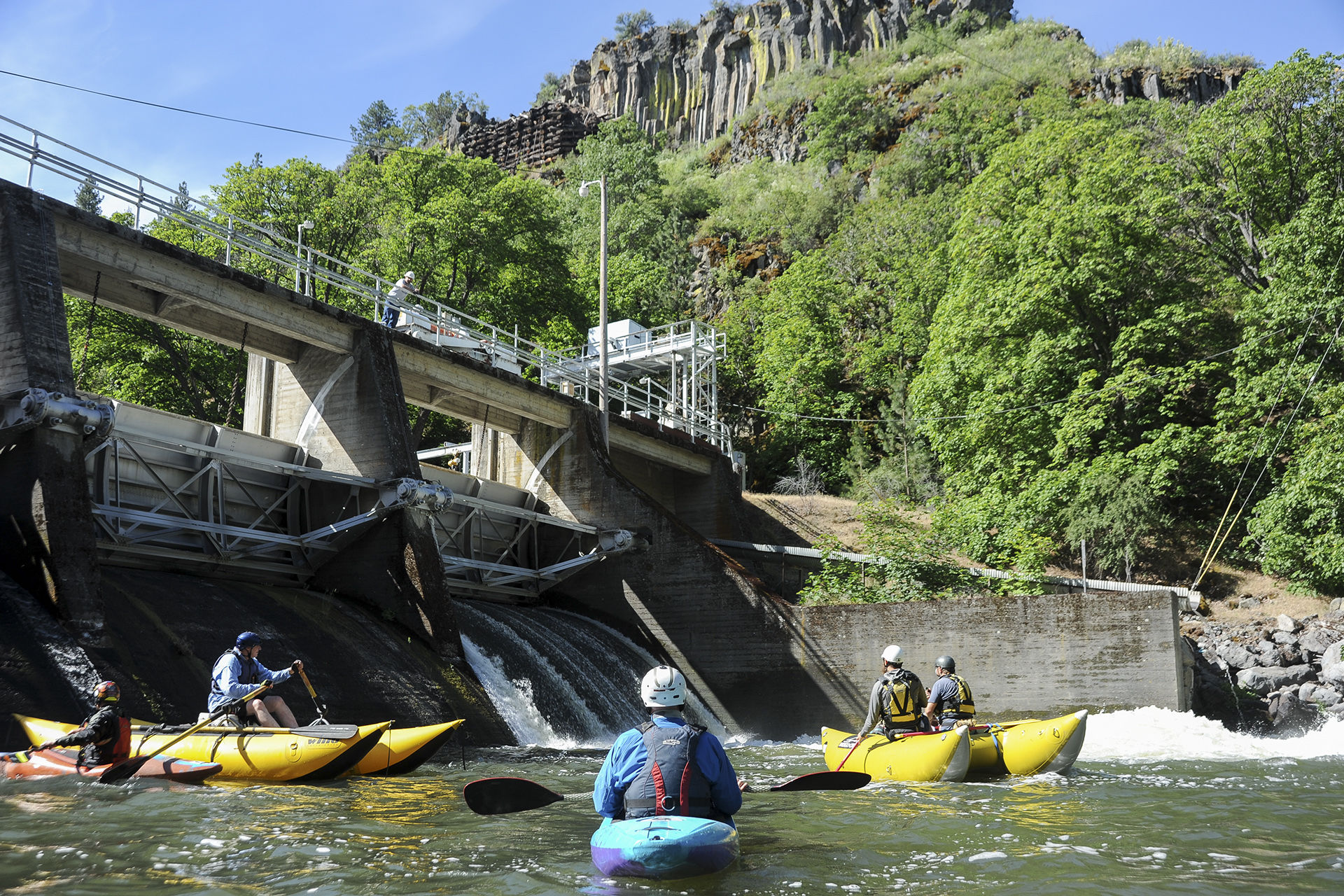
An Uncommon Dialogue about Hydropower Leads to New Possibilities For Rivers
For the past two and a half years American Whitewater has participated in a cooperative effort bringing together members of the hydropower industry, national conservation organizations, the Department of Energy, and others who are committed to addressing the urgent challenge of climate change, and its impacts on rivers. Co-convened by Stanford University's Woods Institute for the Environment as a part of the Energy Futures Initiative, this Uncommon Dialogue process resulted in a Joint Statement of Collaboration on U.S. Hydropower that outlines our shared task to chart hydropower's role in a clean energy future in a way that also supports healthy rivers.
Dave Steindorf, who has been the lead for American Whitewater in this endeavor, when asked about why this effort has been important, stated "This may be the first time that industry and conservation groups have gotten together to create a pathway to transform our current hydropower infrastructure towards a more sustainable system that will protect and restore river health while assisting in tackling climate change." Steindorf added, "If you are not at the table, you're on the menu, so American Whitewater has been, and will continue to be there advocating to create a path forward to address climate change that does not degrade rivers in the process."
American Whitewater has played an integral role in representing the whitewater recreation community's interests when opportunities to restore hydropower rivers have arisen over the past several decades. We've had incredible success restoring flows below hydropower projects, and removing dams altogether on aging infrastructure where the recreation and ecologic benefits outweigh the economic and power generation benefits. Many times these stewardship gains take decades, despite consensus that the projects have run their course. A critical part of this new initiative--to more efficiently rehabilitate and remove hydropower projects to improve safety, mitigate environmental impacts, and reduce greenhouse gas emissions--will pay enduring dividends for our communities, rivers, and the quality of our boating experiences.
There are more than 80,000 dams in the federal National Inventory of Dams. They serve many purposes, including electricity generation, flood control, irrigation, navigation, water supply, and recreation. Some dams, however, pose safety risks, have limited electric generation value, or impose unacceptable environmental and social justice impacts. Dams, like those on the Klamath River or White Salmon, cannot remain in place and continue their impacts two decades past when the decision to remove them was made. Allowing dams with known safety issues to fail--the Edenville Dam disaster in Michigan in 2020 and the 2017 Oroville spillway crisis, to cite only two--is simply unacceptable. While the Joint Statement provides a roadmap, it is only the first step toward making these opportunities a reality. American Whitewater looks forward to working with the hydropower industry, tribal communities, and the river conservation community to develop the necessary actions.
Now is when the real work begins to make the goals of the Uncommon Dialogue become real, which includes ensuring that river health is protected and improved. We know that addressing the critical challenges of climate change and river degradation with a business-as-usual approach will not get the job done. "The rhetoric has definitely shifted and is becoming more thoughtful," said Malcolm Woolf, President of the National Hydropower Association, in a recent New York Times article on the Uncommon Dialogue. "We're now willing to talk about removing uneconomic dams, and environmentalists are no longer talking about all hydropower being bad." American Whitewater is optimistic that, working together, we can improve our climate future and realize benefits for our rivers.
Our goal is the same as it has always been. We stand up for rivers, watersheds, and communities affected by hydropower operations, and we will be steadfast in advocating for these core priorities throughout the Uncommon Dialogue.
